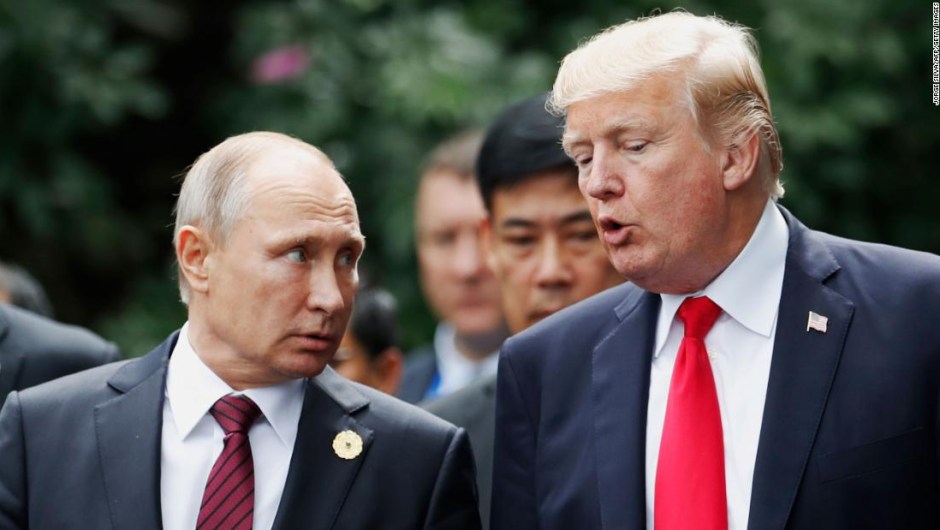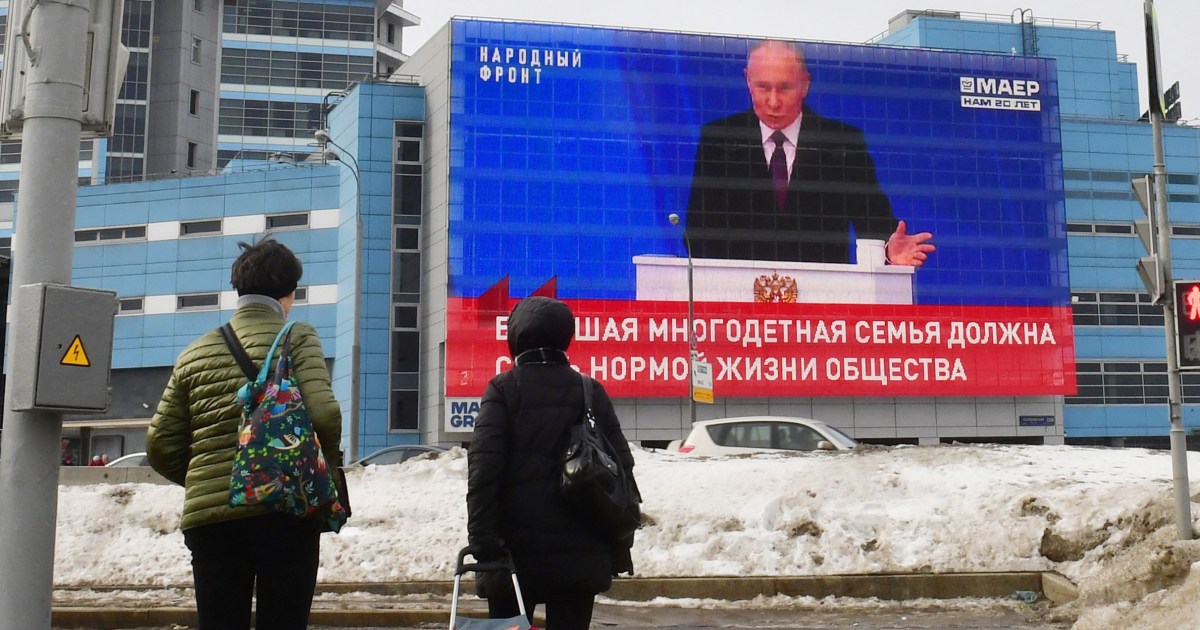Editor's Note:
Mikhail Fishman is a Russian freelance journalist and broadcaster, host of TV Rain, former editor-in-chief of the Moscow Times, and writer of 'The Man Who Was Too Free,' an award-winning feature-length documentary about Boris Nemtsov.
The opinions expressed here are yours.
Read more opinion on CNN.
(CNN) -
Four years ago, officials in Moscow were preparing, along with the rest of the world, for what seemed inevitable: a Hillary Clinton presidency.
It was a grim prospect for Russia's President Vladimir Putin at a time when his country was overwhelmed by a series of scandals.
That summer, the world learned of the massive state-sponsored doping program in Russian sport.
In September, an international investigation led by the Netherlands found that Malaysia Airlines flight MH17, which crashed while flying over Ukraine, had been shot down by a Russian missile, killing all 298 on board.
Around the same time, Russia launched a brutal bombing campaign in the Syrian city of Aleppo, killing hundreds of civilians and devastating the city.
A Clinton victory would have put Putin in a difficult position.
Clinton was tough on Russia and was expected to form a coalition of Western leaders to try to isolate Russia.
Donald Trump, by contrast, was viewed within the Kremlin as someone who would not attempt to build this kind of alliance.
An opportunistic and anti-establishment American leader like Trump was thought to allow the Western world to begin to implode from within.
At the time, Putin's response to the challenge was ambivalent.
Clearly alarmed by Clinton's predicted victory, he said it was absurd to suggest that Trump was his preferred candidate and seemed to be cautiously suggesting that Moscow and Washington should start over.
At the same time, hacking Russia into the Clinton campaign to prevent her from winning became one of the central themes of the election.
Surprisingly, not much seems to have changed when Americans vote four years later.
advertising
As in 2016, agencies connected to the state of Russia are accused of trying to mobilize Trump supporters through social media.
And US intelligence agencies maintain that Putin "is probably running" a disinformation campaign to "denigrate" the Democratic candidate.
(Russia denies allegations of election interference, and Foreign Minister Sergey Lavrov said last month that "there are no grounds for such statements").
LEE
: US intelligence says that Russia and Iran have interfered in the presidential elections
And last week, Putin backed down from negotiations on the New START arms reduction treaty, saying Russia was willing to agree to freeze its nuclear arsenals to extend the deal.
This unexpected move seemed designed to give Trump a diplomatic victory before the US election.
Putin has said he will work with whoever wins the White House.
But Moscow realizes that it cannot trust Biden to be as accommodating to the Kremlin as Trump.
Washington is expected to impose new sanctions on Russia for the recent poisoning of Russian opposition leader and fierce Putin critic Alexey Navalny with a military-grade nerve agent, but the Biden administration is expected to take an even harsher approach. than Trump.
Presumably the Kremlin also hopes that a Democratic administration will put more pressure on Russian officials and oligarchs connected to the state on a corporate and personal level.
However, sanctions, sensitive as they are, will hardly change the rules of the game.
Putin's Russia has already gotten used to sanctions.
Furthermore, as the confrontation continues to grow over the Navalny poisoning, the Kremlin has shown its willingness to stand firm and even raise tensions by rejecting critics.
"We probably just have to temporarily stop talking to those people in the West who are responsible for foreign policy and do not understand the need for a dialogue of mutual respect."
So said Foreign Minister Lavrov this month after European Union foreign ministers agreed to impose sanctions on Russian officials and organizations accused of the Navalny poisoning.
Putin, for his part, recently indicated that he could not care less that the West treated him as anything but a murderer and imposed sanctions on those close to him.
"I've had a long time to get used to these attacks," he said.
They have no effect on me.
From an internal political point of view, Putin can afford to reject the West.
Amplified by official propaganda, anti-Western, especially anti-American, sentiment is deeply ingrained in the Russian mindset.
60% of Russian respondents told the independent Levada Center that they consider the United States to be hostile to Russia.
And that the concept that Russia is a besieged nation remains a cornerstone of Putin's legitimacy.
While Russia's political establishment and the general public applauded Trump's victory four years ago, the 2020 U.S. elections are attracting less attention.
The latest Levada poll found that most Russians don't care about their result.
And 65% believe that the winner will not make a difference for Russia.
16% support Trump, 9% support Biden, which is not surprising given that national television portrays Trump in a positive light and presents Biden as a radical left-wing old man.
More importantly, a Biden victory could mean that the Kremlin will once again face a more united West, the same threat to Putin's agenda as four years ago, and under similar circumstances.
Russia's denials of the Navalny poisoning have stunned Europe and have likely been the final nail in the coffin of French President Emmanuel Macron's plans to build trust with Russia.
A consolidated liberal front that includes the United States led by Biden will also constitute a much greater challenge to Vladimir Putin's global ambitions from Syria to Ukraine, from Afghanistan to Belarus.
Consider Belarus, the former Soviet republic on Russia's western border.
The government of Alexander Lukashenko, his cruel and infuriating dictator, has been shaken after hundreds of thousands of Belarusians took to the streets across the country in response to what they saw as a blatantly rigged presidential election.
These massive protests were met with brutal force.
LEE
: Belarusians accuse authorities of torture and humiliation during mass arrests
For now, Russia has refrained from military intervention and Lukashenko dominates largely thanks to Putin's moral support.
But how will Moscow react if Lukashenko starts to lose ground?
It is difficult to say.
But it seems likely that the Kremlin would think twice about getting directly involved if it expects consolidated pressure from the West.
While the tension between Russia and the West has increased, the key theme of the 2020 U.S. elections remains unchanged.
If the Trump era is extended for another term, it will be a victory for Putin in his zero-sum game with the West.
If Trump is defeated, it will also be a defeat for Putin.
Vladimir Putin









